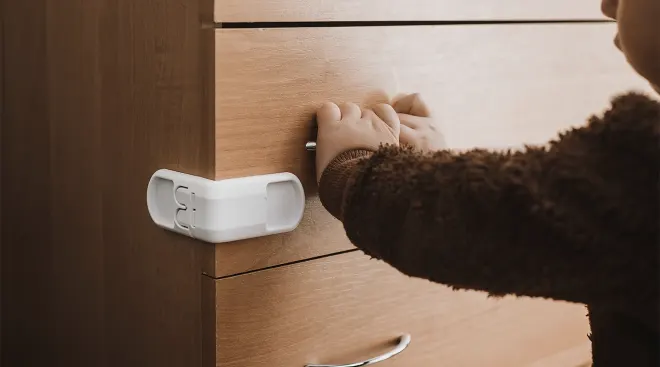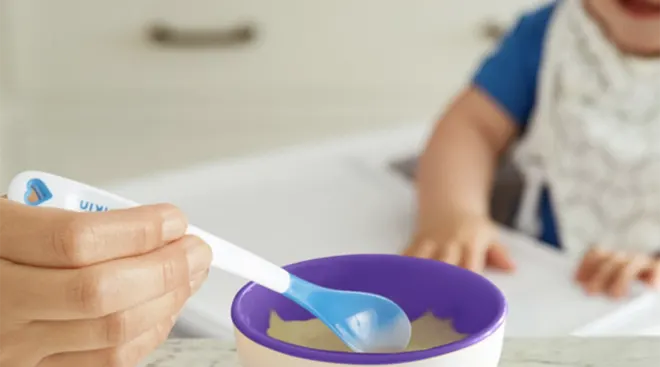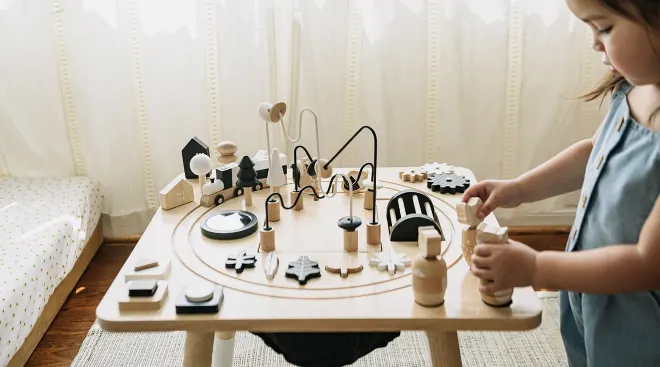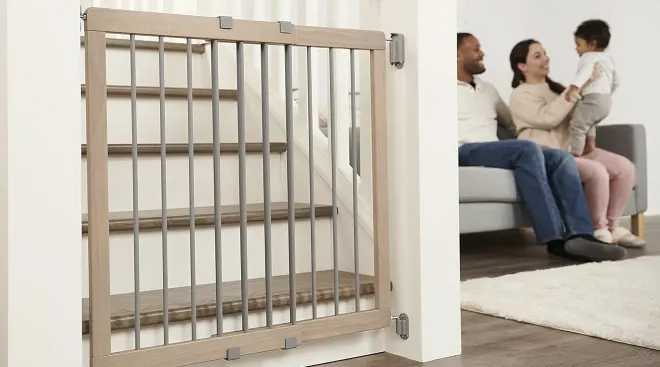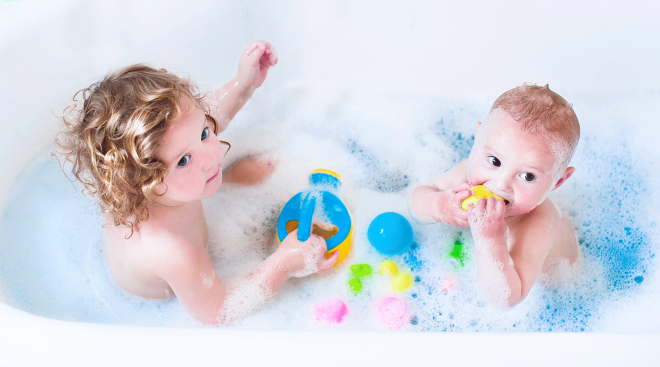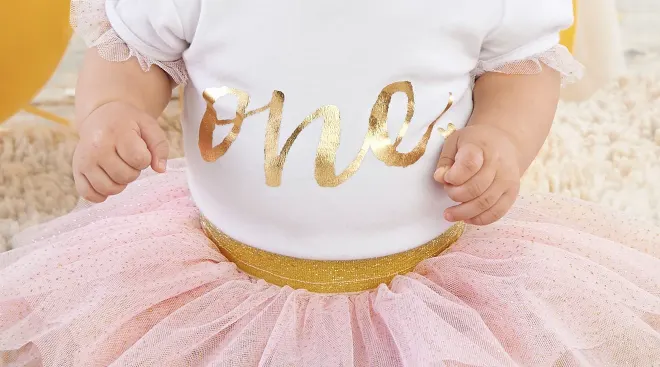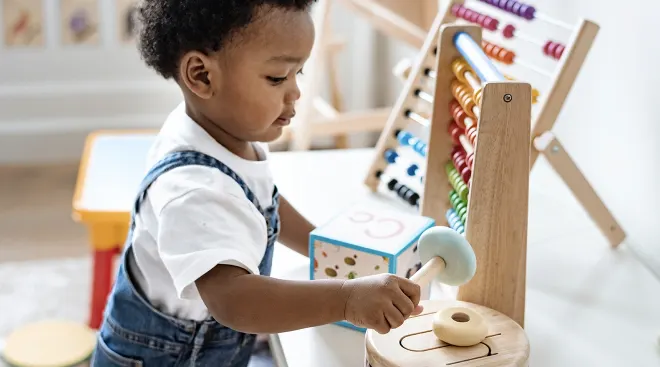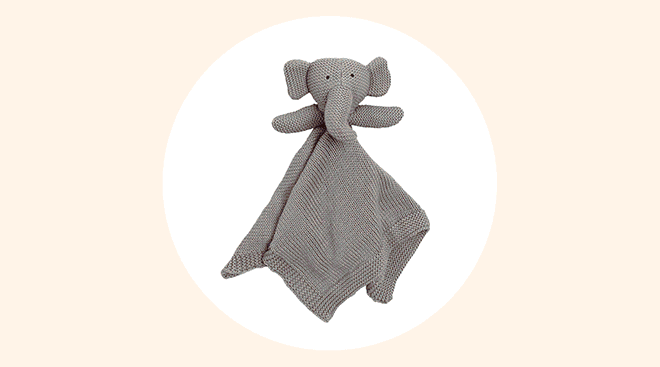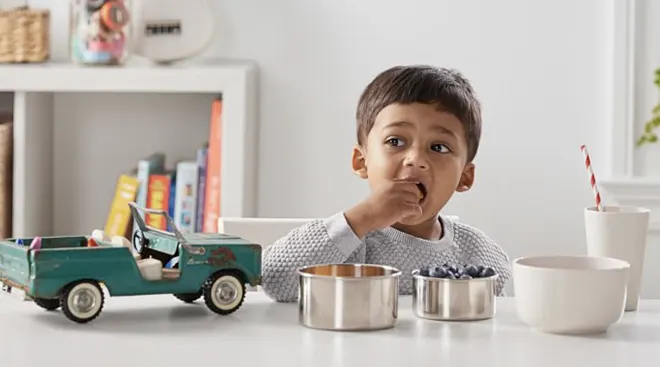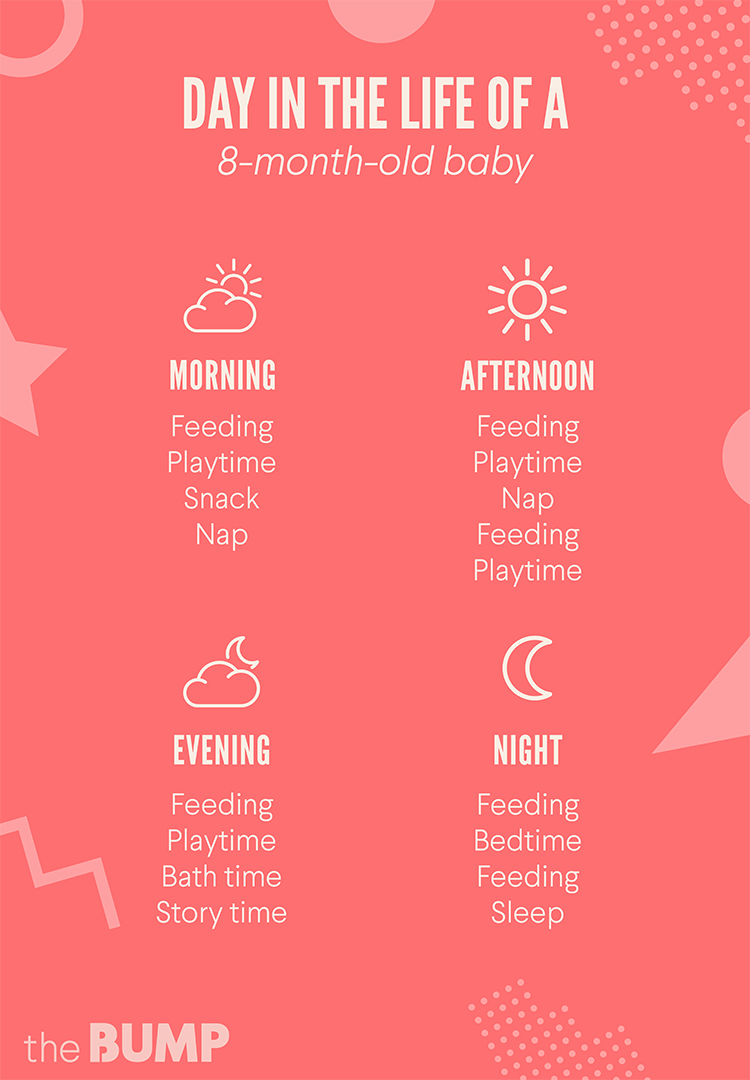8-Month-Old Baby
8-Month-Old Baby
Your baby is 8 months old! You have quite the little observer now—baby is very aware of their surroundings and what’s happening around them. If you have a tendency to lose your cool in high-pressure situations, you'll want to dial the emotions back—your little one is watching and learning. One thing that probably stresses out your 8-month-old baby is separating from you. If baby fusses when you leave their sight, try not to let it get to you. It’s baby’s way of telling you they miss you! Separation anxiety is actually an indicator of a good parent-child bond. Plus, baby’s caregiver will be able to distract them and stop the crying pretty quickly after you leave.
Eight months in, and you’re a pro. Still, it’s normal to have questions as this next parenting stage approaches. Curious about what an 8-month-old baby should be able to do? Wondering whether baby is meeting their 8-month-old milestones? Concerned that your 8-month-old should be babbling more? Don’t fret, we’ll help hash out what’s developmentally appropriate for baby’s current age. Read on for our guide to navigating life with an 8-month-old.
Baby keeps on growing—and keeps on going! It’s unbelievable how much your little one is moving these days, isn’t it?
8-month-old baby weight and length
We know you’re wondering: How much should an 8-month-old weigh? Average weight for an 8-month-old baby is 17.5 pounds for girls. Average 8-month-old weight is 19.0 pounds for boys. Average length is 27.1 inches for girls and 27.8 inches for boys, according to the World Health Organization.
Of course, height and weight can vary widely between healthy babies, so as long as they’re growing at a healthy rate—on a steady curve on the chart at the doctor’s office—and the pediatrician doesn’t see any signs of a problem, baby’s growth is right on track.
8-month-old’s five senses
- Baby still sees better close up than far away but now has better depth perception and is able to spot things from across the room. They’ll begin recognizing you and other familiar faces from further away.
- They can better eyeball distance and depth, making it easier to reach out and grab things.
- Textures and shapes are captivating to baby! Tags and handles might seem especially exciting to touch and feel, and baby is making the connection that different shapes are, well, different!
8-month-old baby milestones
So what amazing physical feats will baby accomplish in the coming weeks? There’s a lot happening developmentally. Here’s a look at what an 8-month old should be able to do:
- Sitting. Baby can probably sit up without assistance—but you'll still need to catch them sometimes—and is beginning to lean over to pick up toys. Their muscles are getting stronger every day!
- Moving and grooving. After sitting comes rolling, crouching, twisting and rocking while kneeling. All of this is gearing up for crawling (if baby hasn't accomplished that yet!). When baby is on the floor, they’re in constant motion!
- Crawling. You’re probably wondering: Should my 8-month-old be crawling? It depends. Some babies start crawling as early as 6 or 7 months old, while others simply take their time—or skip the crawling step and go straight to walking! If your 8-month-old isn’t crawling just yet, don’t fret. Some 8-month-olds who are not crawling are rolling around, “creeping” or scooting to get where they want to go. If your 8-month-old is not crawling, they’re still within the normal range.
- Talking. What should an 8-month-old be saying? This is around the time when baby will start piecing together sounds to make words like “mama” or “dada.” While 8-month-old babies might say these words, they may not quite understand what they mean just yet. Between 9 and 14 months, you’ll begin seeing them connect meaning to the words they say.
Having a baby seems like a never-ending search for answers to health questions. Here are some common things parents ask: My 8-month-old is constipated. What should I do?
- My 8-month-old has diarrhea. What should I do?
- My 8-month-old is vomiting. What should I do?
- My 8-month-old has a fever. What should I do?
Now that baby’s eating solid foods—and still drinking formula or breast milk—it’s easy to get overwhelmed by how much of what they should be consuming. Just remember: The fluids are still where an 8-month-old baby gets the majority of their nutrition.
Think about it this way: Your child should eat between 750 and 900 calories per day. Four hundred to 500 of those should come from breast milk or formula. So start the meal off with nursing or a bottle of formula, and then offer a meal with a healthy balance of fats, carbohydrates and protein.
At the eight-month mark, you might want to add soft table foods and finger foods with different textures to baby’s menu. Have them join the family at the table for meals—it's a great way to foster good eating habits!
If you haven’t already, eight months old is a good time to introduce a sippy cup or transitional cup to baby. At first, it might be more of a plaything than a cup, but it’s good to get your kid familiar with the sippy early. It might just help them become a cup-drinker easier and earlier.
How much should an 8-month-old eat?
- Bottle feeding: How much formula for an 8-month-old? Your 8-month-old baby should be consuming about 24 ounces of formula in a 24-hour period. So if baby has six bottles each day, make them each four ounces.
- Breastfeeding: Eight-month-olds still typically nurse about every three or four hours.
- Pumping: If you’re pumping, an 8-month-old baby needs a total of about 25 ounces of breast milk per day. So you’ll need to divide that by how many feedings your baby typically has. For example, if you feed baby about eight times per day, they should get about 3.1 ounces of breast milk at each feeding. Keep pumping each time baby has a bottle, and you should be able to keep up your breast milk supply.
- Solid food: Baby should have three meals and two snacks per day. Try to stick to non-processed, unsweetened or unsalted foods as much as possible.
What should an 8-month-old be eating?
Good foods for an 8-month-old baby may include:
- Apples
- Avocado
- Barley
- Carrot
- Cheddar cheese
- Eggs
- Quinoa
- Mango
- Pasta
- Pumpkin
- Rice
- Sweet potatoes
- Tofu
- Turkey
- Zucchini
Finger foods for an 8-month-old baby can be any of the above, if cooked until soft (except for avocado and tofu, which don’t need to be cooked) and cut or ground into very small bits.
What snacks can I give my 8-month-old?
Many of the above foods make great snacks for 8-month-old babies. They may also enjoy sweet fruit, such as berries, pears, watermelon and peaches. Cottage cheese, unsweetened applesauce and yogurt are other common delights.
8-month-old feeding schedule
Sleep is probably still top of mind for you, but hopefully you and your little one are both getting a bit more rest at this stage.
How much should an 8-month-old sleep?
It’s typical for an 8-month-old to sleep a total of about 15 hours each day. About 11 hours of that should be at nighttime. Your baby still probably wakes at night, but sleeps a longer stretch. Some babies even sleep through the night the full 10 to 12 hours at 8 months—if that’s your baby, lucky you!
A typical 8-month-old nap schedule includes two naps that total about three-and-a-half hours of daytime sleep.
8-month-old sleep schedule
Is 8-month-old sleep regression normal?
Yes! Some babies start waking up more at night around 8 months. A lot of times they’re getting up to practice their newfound motor skills: pulling themselves up to stand and maybe even cruising. The problem is, they don’t always know how to get back down and call out to you for help! Others want extra time with their parents—and may be more likely to wake at night if you’re separated during the day (sorry, working parents). So if your 8-month-old suddenly wakes up every hour or your 8-month-old is not sleeping when and how they used to, you can probably chalk it up to sleep regression.
Be as patient as you can be, reinstate some of the sleep tricks that used to work when baby was younger and try out some new tricks to try to help baby’s sleep get back to normal.
What are some tips for sleep-training an 8-month-old?
Sleep-training isn’t always easy—and it isn’t for every baby—but if successful, sleep-training will help your baby learn to self-soothe. The idea is that if they wake up at night, baby will know how to get themself back to sleep. Here’s some awesome sleep-training advice that can help you on your way to a good night’s sleep for the whole family.
Your 8-month-old is now awake for about 10 hours per day. Beyond feedings, bathtime and play-on-the-floor time, you’re probably looking for other things to do with an 8-month-old baby. Check out this list of baby activities that will give you an idea of things to do now, as well as things to do with baby as they grows.
8-month-old schedule example
A 8-month-old’s daily schedule might look something like this:
- Schedule baby’s nine-month checkup, if you haven’t already.
- Introduce a transitional cup if you haven't already.
- Give baby their own kitchen cupboard full of baby-safe items (wooden spoons, plasticware and measuring cups!), and put locks on the rest.
- Introduce soft finger foods in very small bits for baby to easily gnash.
- Take baby’s 8-month-old baby milestone photo.
- Eight-month-old babies are getting close to forming their first words. It’s more important than ever to read, sing and converse to encourage those early language skills. Speak slowly and clearly, and remember to repeat everything you say.
- Your 8-month-old baby may now be more attached to certain people or toys than ever before. What’s more, a baby that was once extremely social may turn shy overnight. Clinginess is normal during this phase as baby is learning about separation.
- Baby loves to laugh at this age, and there’s nothing sweeter than the sound of their little giggles. Play repetitive games; drop something on the floor and act surprised each time it falls. In doing so, your 8-month-old will begin to develop memory and learn the concept of cause and effect.
There are so many special 8-month-old baby milestones to celebrate and many more exciting experiences on the horizon. In the coming weeks and months, baby will get stronger and work toward sitting up, crawling, standing and walking.
Please note: The Bump and the materials and information it contains are not intended to, and do not constitute, medical or other health advice or diagnosis and should not be used as such. You should always consult with a qualified physician or health professional about your specific circumstances.
Navigate forward to interact with the calendar and select a date. Press the question mark key to get the keyboard shortcuts for changing dates.
































